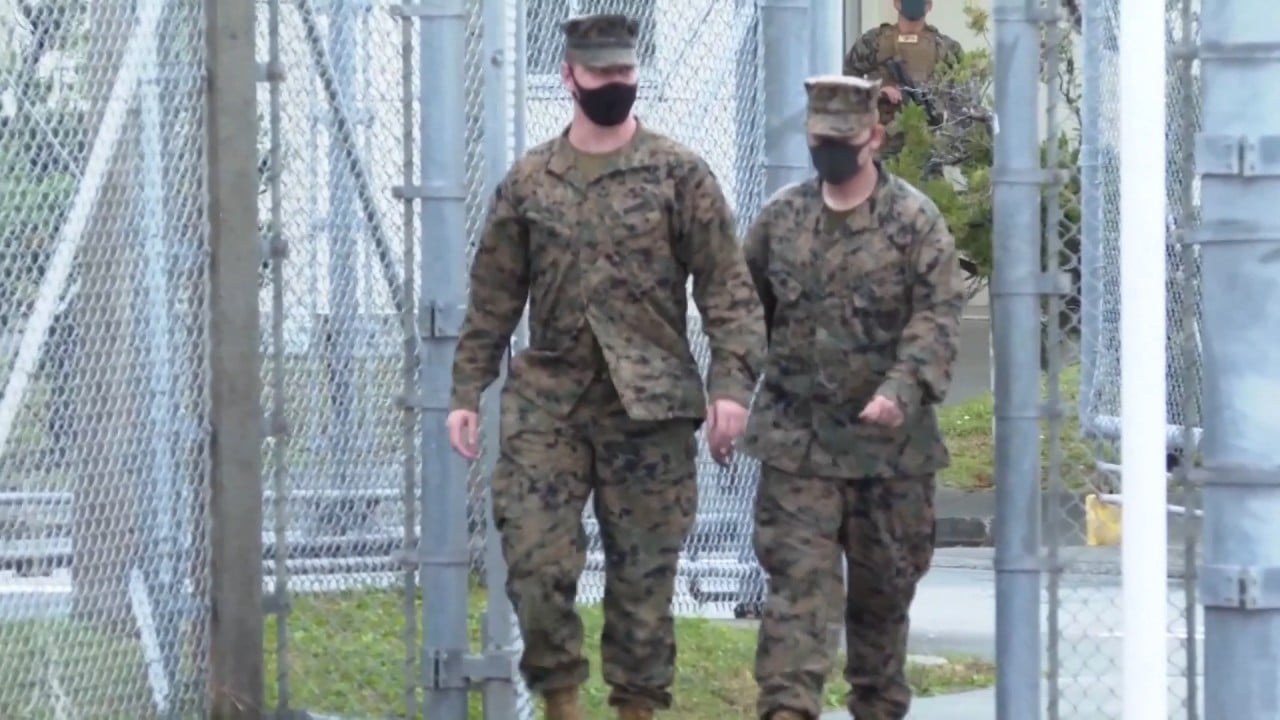
Japan pays for American noise pollution with US$466 million in lawsuit damages over aircraft nuisance
- Japanese courts have ordered compensation is paid to people living close to five US bases, as part of a ‘sympathy budget’ for hosting American troops
- The US is supposed to pay 75 per cent of any damages if its forces are at fault, but lawmakers say there’s no evidence any payment has ever been made
Japanese taxpayers have been footing the bill for noise pollution caused by American aircraft in dozens of compensation suits filed by people living close to US military bases.
Confirmation that the Japanese government has paid more than 70 billion yen (US$466 million) to people living near five US bases for the excessive noise generated by American aircraft came in an official response to an opposition politician on February 27, the Mainichi newspaper reported.
The request for information filed by Tomohiro Yara, of the opposition Constitutional Democratic Party of Japan, revealed that while Tokyo has asked the US to meet its compensation commitments, “there is no evidence that any payment of any kind has been made by the US government at this time”.
Masafumi Chinen, whose father fought a long-running lawsuit against the US Futenma Air Station in Okinawa prefecture, said local people had long believed that compensation payments were not being made by the US.
“People in Okinawa have not believed that for many years, but I think that most people in mainland Japan did not realise what was going on,” he told This Week in Asia.
“I’m angry, and I hope they are angry as well,” he said. “It is not fair that we have to live with the noise from the bases, and it is not fair that Japanese taxpayers are paying the compensation for the noise the US military makes.”
He added that he was “not surprised” to hear that despite repeated requests from Tokyo for the US to pay its share of the compensation, no funds had been forthcoming to date.
The Chinen family was among more than 400 plaintiffs who filed a suit in 2002 asking that military flights out of Futenma be halted between 7pm and 7am so local people could sleep without being interrupted by night-flight operations. The suit was finally rejected in 2020.
To date, Japanese courts have ordered compensation in a number of noise pollution cases involving five US bases in Japan: Futenma and Kadena Air Base in Okinawa; Yokota Air Base in Tokyo; Naval Air Facility Atsugi in Kanagawa prefecture, southwest of Tokyo; and Marine Corps Air Station Iwakuni in Yamaguchi prefecture in central Japan.
The largest payment was to people living close to Kadena Air Base, with the Japanese government handing over 43 billion yen (US$286 million).

In its statement to the Diet, Japan’s parliament, the government said it had “continued dialogue while maintaining the position that we request the US government share compensation payments”.
However, “due to the difference between the position of the Japanese government and that of the US government, no conclusion has yet been reached and there is no evidence that any payment of any kind has been made by the US government at this time”.
The report on compensation payments coincided with news that Japan paid the entire 1.14 billion yen cost of decontaminating nearly half a hectare of land at Fukuoka airport that had been used as a US military base. When it was returned to Japanese control, contaminants including benzene and lead were detected in soil close to a US military pipeline in use between 1945 and 1972.
“These payments come under what is known as the ‘sympathy budget’ that Japan pays to host US troops, and it is likely that Tokyo is just letting these payments go in part out of concern for an incoming [Donald] Trump presidency,” said Stephen Nagy, an international-relations professor at Tokyo’s International Christian University.
“Japan will be loath to do anything that might make it appear it is not sharing its part of the security burden in case Trump is re-elected and he starts asking for a lot more under the mutual security treaty.”


